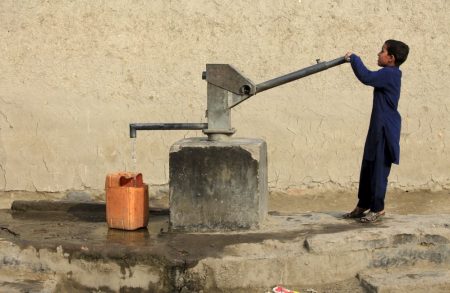February 7, 2018 – Writing from the very dry Nicoya Peninsula, Costa Rica, which is surprisingly seeing more rain than normal this year, it seems appropriate to talk about headlines that continue to highlight the world’s growing climate change problem.
Freshwater shortages are a consequence of two human failings, both correctable.
The first is climate change brought about by the burning of carbon-based fuels.
The second is our inability as humans to manage world population.
The additions of greenhouse gases to the atmosphere beyond the capacity of natural carbon sinks to absorb successfully is creating disruptions to Earth’s weather patterns. The two most recent headlines cover the city of Capetown, South Africa, and Pakistan.
In Capetown, we are being told that the city is running out of freshwater with a shutdown date for water delivered to homes imminent. In the last week, the date has been extended from April 12th to mid-May because of the latest emergency measures tapping into reservoirs and aquifers used only in emergencies. This temporary reprieve doesn’t address the two issues: climate being altered to impact rainfall patterns; and too many people living in an area where intermittent precipitation normally presents challenges to the natural environment.
In Pakistan, headlines about President Trump denying the country a multi-billion dollar subsidy, have hidden a much greater crisis. The country is running out of freshwater. Runaway urban growth, corruption, crime, and mismanagement have combined with a prolonged drought to make freshwater accessibility an even bigger challenge than American policy changes.
Pakistan had been working on freshwater infrastructure for the past 30 years to give most of its citizens access to the resource for drinking, sanitation, and cleaning. The focus had been on rural freshwater accessibility and not urban. But increasingly people are migrating from farms to the cities with the rate of change annually amounting to 3%. Imagine if American cities suddenly faced a population growing by 3% a year. For New York City alone that would mean a rise of over one-half million annually. Maybe New York could handle it with its layers of infrastructure, but I doubt it. Now imagine the same thing in Lahore or Islamabad.
Why is this happening here?
Climate change is raising the mean average temperature throughout the Middle East and South Asia. One of the reasons for the political turmoil, the rise of Muslim extremists, the Taliban, and other anti-government forces appears to correlate with the temperature rise combined with changes to precipitation in the Indus River valley, the freshwater lifeline of the country.
Combine this with the urban population shift, the overall increase in the country’s population, and weak government, and you have all the seeds planted for negative disruption. Water piracy has become the way of doing business in Pakistan as freshwater resources are depleted. Municipal water sources get siphoned off by a water mafia with fleets of tanker trucks available to the highest bidder. Local populations join in the theft stealing water from municipal hydrants openly making a mockery of local government controls.
Pakistan’s drought, like Capetown’s, is not ending soon which brings us to how we address these challenges. Governments can ration freshwater. Governments can find new places for people to live where there is freshwater security. Family planning can help in dealing with population growth. But we continue to see policy drift on both files: climate change and overpopulation. Not addressing both is a recipe for future pain for the generations that follow.









